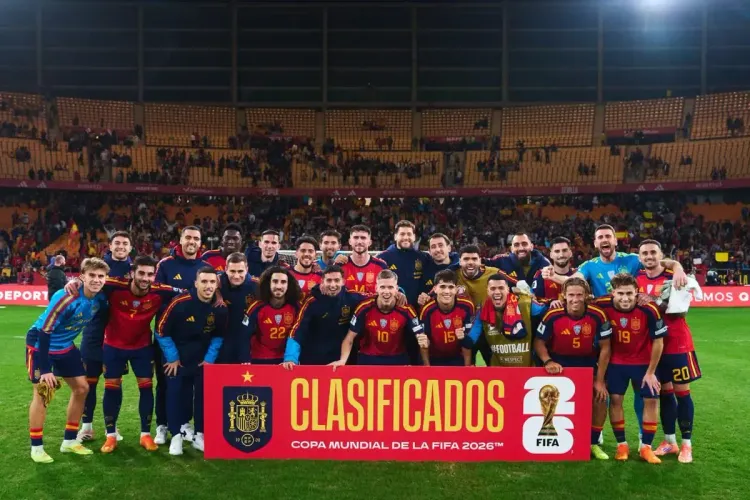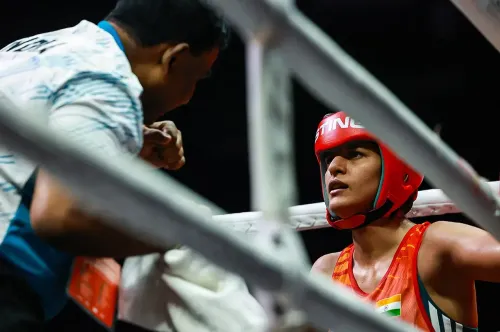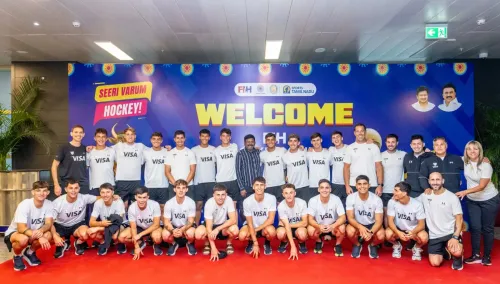Is Spain a Top Contender for the 2026 FIFA World Cup?

Synopsis
Key Takeaways
- Spain qualified for the World Cup with strong results.
- Depth of talent is a significant advantage for the team.
- Coach de la Fuente is committed to a cohesive strategy.
- The upcoming tournament poses challenges due to its demanding schedule.
- Spain's youth system continues to provide valuable players.
Madrid, Nov 19 (NationPress) Even though coach Luis de la Fuente prefers to maintain a low profile, it’s clear that Spain will emerge as one of the top contenders at the 2026 FIFA World Cup, to be held across the United States, Mexico, and Canada. Entering the qualification phase as the defending European champions, Spain only faced defeat to Portugal in a penalty shootout during the UEFA Nations League final.
With a stellar qualifying run characterized by five victories and a single draw, Spain displayed remarkable offensive prowess coupled with impressive defensive stability.
What strengthens Spain's prospects for success next summer is the revealed depth of talent at coach de la Fuente's disposal. While Lamine Yamal has garnered significant attention, he was absent during the last four fixtures, and his absence did not hinder the team as Alex Baena, Ferran Torres, and Mikel Oyarzabal effectively led the attack, according to reports from Xinhua.
Injuries to Nico Williams and Pedri did not adversely affect the side, as Fabian Ruiz, Yeremy Pino, and Fermin Lopez stepped in seamlessly, with Dani Olmo from FC Barcelona remaining an unused substitute.
Despite injuries to defenders like Robin le Normand, Dean Huijsen, and Dani Carvajal, Pau Cubarsi, Marcos Llorente, and Aymeric Laporte were ready to take their places, while Pedro Porro proved to be a viable option at right-back, particularly with his skill in set pieces.
Having returned to the international scene with Athletic Club, Laporte's seasoned presence alongside Cubarsi and Huijsen could prove crucial during the World Cup.
World Cups, always demanding, unfold over a tightly packed schedule of seven matches in five weeks, where injuries and suspensions can take their toll. The upcoming tournament promises to be the longest yet, with additional matches increasing the likelihood of injuries. Nevertheless, de la Fuente has successfully integrated players like Baena, Laporte, Pino, and Fermin Lopez into his squad.
With versatile midfielders like Martin Zubimendi, Mikel Merino, Fabian Ruiz, and Olmo available, de la Fuente enjoys the advantage of being able to rotate players throughout the group stage, ensuring a robust lineup even in the face of injuries or suspensions.
Demonstrating loyalty to his players and style, de la Fuente is inclined to draw from Spain's exceptionally productive youth system. His steadfastness suggests that the core team will remain relatively unchanged as they approach June, though the ongoing competition for spots in the starting eleven keeps all players on their toes.









